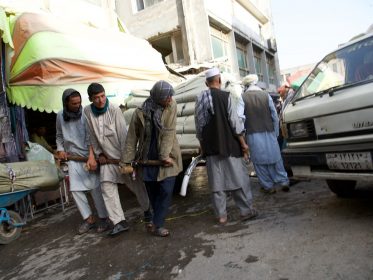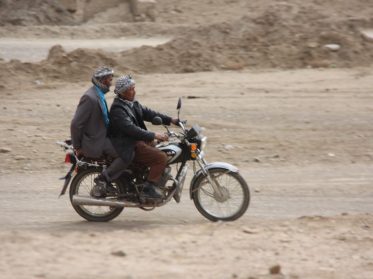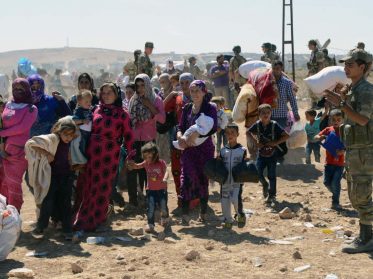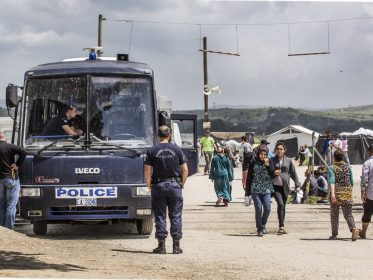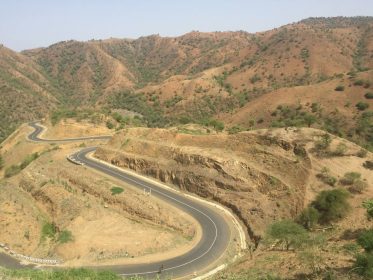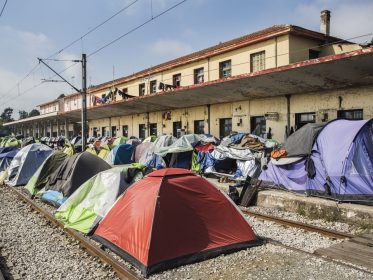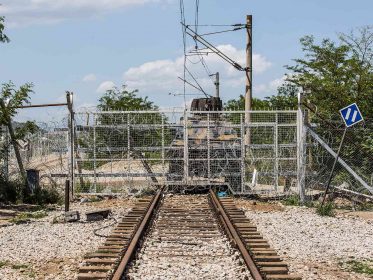Displaced people
Denmark’s Region of Origins Initiative (ROI) was a groundbreaking effort to link humanitarian, development and refugee management ambitions. It is now in its third phase, giving Denmark a lot of experience to draw on in responding to the European refugee crisis, including to address protracted displacement and onward movement. Seefar is proud to have the …
Reviewing assistance to IDPs and refugees in Afghanistan Read More »
Seefar is a social enterprise, which means we use the flexibility, speed and entrepreneurialism of a corporate structure to help vulnerable people build a better future. This means that Seefar reinvests our working capital into projects and initiatives to improve the lives of the most vulnerable. Our program for migration, displaced people, human trafficking and modern slavery is currently developing initiatives to address …
Skunk Works: Finding ways to solve the big issues of Migration Read More »
Migrants in Europe are considered by many to be the ‘safe’ and ‘lucky ones’. However, migrants in Europe are still vulnerable. One of the biggest drivers of this vulnerability is access to information. Our research has shown that migrants in refugee camps or government centres in Europe feel they have insufficient information to understand the processes they are in …
Since 2011, almost 5 million people have fled Syria. With over 2.9 million registered Syrians, Turkey currently hosts the largest community of Syrians displaced by the ongoing conflict. The conflict and its human impact is one of the greatest humanitarian and refugee crises in modern time. Through qualitative research, Seefar aims to understand the migration experiences of Syrians …
Migration issues have traditionally travelled in exile around the core development agenda. People moving to seek refuge or a better job have been seen as a consequence of development trends, rather than a primary target for development programming itself. With migration and asylum issues more prominent on the global agenda, governments are demanding the development industry address …
Why Migration Issues are Difficult for Aid Agencies Read More »
The Brussels Conference on Afghanistan features a high-level dialogue on migration dedicated to finding ways to manage irregular migration from the country. In a country where resurgent conflict in one province coexists with promising development advances in other parts of the country, there are no easy answers. A new article from Seefar, Irregular Migration to the European Union: …
Beyond ‘mass arrivals’: insights into Afghan irregular migration Read More »
In recent years we have heard that displacement has reached historic and unprecedented levels – it has been common to note that 65 million people are now forcibly displaced. Intrigued by these claims, Seefar collated widely published data on the issue and explored exactly what they say about displacement. Displaced people – What is the …
Measuring International Migration: The Real Picture Of Forced Displacement Read More »
In July 2016, Seefar conducted a survey of migrants who had recently settled in European countries to determine if migrants changed their destination preference once they arrived in Europe. The study also identified where and why migrants changed their mind. The migrants surveyed were selected if they had: Settled in The United Kingdom, The Netherlands,Germany, or a combination of …
This working paper, Iranian Refugees: An Exploration of Irregular Migration to the UK, utilizes data collected from a series of interviews to explore the motivations and expectations of people in Iran intending to migrate irregularly to the UK. From this initial group of 199 interviewees, we reconnected with 45 migrants 12 months later, in December 2015, to determine how they had progressed …
